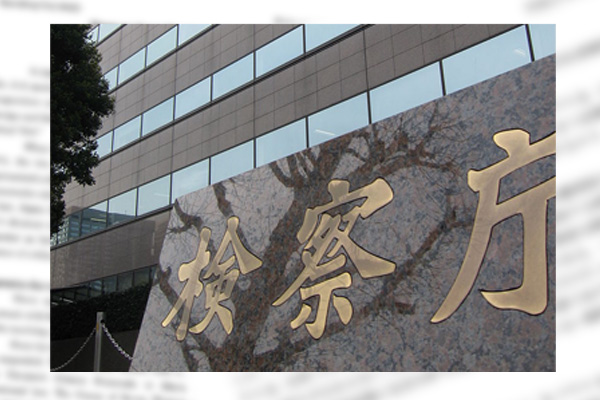A bill to revise the Public Prosecutors Office Act to raise the mandatory retirement age for prosecutors has been submitted to the National Diet in Japan and come under fire in the Internet community, with many entertainers and others posting their complaint against the bill. After 38 regional bar associations issued their chairs’ statements against the bill, the Japan Federation of Bar Associations (JFBA) released its chair’s opinion against it on May 11.
“The bill could undermine the separation of powers doctrine among the three branches of government,” said the chair of the federation. “The bill could allow the cabinet to discretionarily control the appointment of Public Prosecutors Office executives who could arrest even the prime minister for any illegal act. This is a serious issue. None should take advantage of the current pandemic for making such a decision,” opposition party leader Yukio Edano told the House of Representatives Budget Committee on May 11. But, the fact is that this is not such a serious issue.
JFBA complaint is difficult to understand
The bill consists of two key measures. First, the current mandatory retirement ages of 65 for the prosecutor-general and 63 for other prosecutors would be unified into 65. Second, the age for executive prosecutors other than the prosecutor-general to lose their executive positions would be raised from 63 to 65 or 66 if the cabinet determines such raise as necessary. Those executive prosecutors include deputy prosecutor-generals, superintendent public prosecutors and chief public prosecutors.
The two measures are designed to adjust the Public Prosecutors Office Act to the National Public Service Act for national government employees in general. The JFBA does not oppose the first measure, but it criticizes the second measure for allowing the cabinet to raise the age limit for their favorite executive prosecutors and control the Public Prosecutors Office that should be politically neutral.
In January, the cabinet decided to retain Hiromu Kurokawa as superintendent public prosecutor of the Tokyo High Public Prosecutors Office beyond the current compulsory retirement age of 63 by applying the National Public Service Act. Opponents to the bill argue that the bill is effectively designed to confirm the decision. Even if the bill is passed, the revision to the Public Prosecutors Office Act will take effect 2 years after, failing to cover Kurokawa’ s case. But opponents to the bill claim that they have raised the objection to the bill because Prime Minister Shinzo Abe and his cabinet have submitted the bill to justify the decision on Kurokawa that has become controversial.
Controversy indicates political motivation
Given that public prosecutors are employees of the Justice Ministry as an administrative agency and that the prosecutor-general and other executive prosecutors are appointed by the cabinet in the first place, any cabinet decision to raise the age limit for executive prosecutors in some cases should not cause a problem serious enough to undermine the separation of powers. In fact, if the Public Prosecutors Office is allowed to decide on executive appointments without cabinet involvement, it might bring about what was once criticized as “prosecution fascism.”
The current controversy reminds us of a prewar debate over the imperial supreme command. Politicians colluded with some military leaders opposing the government’s compromise at the London Naval Conference on Disarmament in 1930 to complain that the government’s acceptance of disarmament would violate the emperor’s supreme command of armed forces, leading to a serious controversy that later distorted the interpretation of the constitution.
Somber discussions are required on how the cabinet should be discretionary about whether to raise the age limit for executive prosecutors. Any attempt to exaggerate the problem and link it to criticism against the Abe cabinet would represent nothing more than political motivation.
Katsuhiko Takaike is an attorney-at-law and Vice President of the Japan Institute for National Fundamentals.


